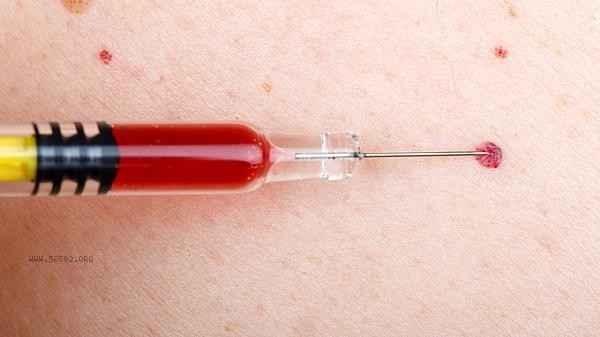Under normal circumstances, the bleeding time is generally 1-3 minutes, and the actual time is affected by various factors such as wound type, coagulation function, degree of vascular damage, platelet count, and medication effects.

1. Wound type:
Superficial abrasions or capillary ruptures usually stop bleeding within 1-2 minutes, while deep incisions or arterial bleeding may extend to 3-5 minutes. Skin and mucosal injuries heal quickly, and the hemostasis time for muscle or organ injuries significantly increases.
2. Coagulation function: When the coagulation factor activity is normal in healthy individuals, hemostasis is rapid. Congenital hemophilia, vitamin K deficiency, or liver dysfunction can lead to prolonged prothrombin time, with bleeding times possibly exceeding 10 minutes.
3. Vascular injury:
Capillary bleeding usually stops within 2 minutes, while small vein bleeding takes 3-4 minutes. Arterial bleeding requires compression to stop bleeding due to high blood pressure, and the natural hemostasis time can be more than 5 minutes.

4. Platelet count: When the platelet count is below 50 × 10 ⁹/L, the bleeding time is prolonged. Diseases such as idiopathic thrombocytopenic purpura and aplastic anemia can lead to insufficient platelet production, manifested as persistent bleeding.
5. Drug effects:
Anticoagulants such as aspirin and warfarin can inhibit platelet aggregation, prolonging bleeding time by 30% -50%. Traditional Chinese medicines such as Sanqi and Danshen, which promote blood circulation and remove blood stasis, may also affect the speed of hemostasis.
Daily attention should be paid to maintaining a balanced diet, supplementing with foods rich in vitamin K such as spinach and animal liver in moderation. Avoid frequent use of nonsteroidal anti-inflammatory drugs, and local compression hemostasis can be used for traumatic bleeding. If bleeding lasts for more than 10 minutes or if unexplained bleeding occurs repeatedly, it is recommended to perform blood routine and coagulation tests to rule out blood system diseases. Elderly people and those who take anticoagulant drugs for a long time need to regularly monitor their coagulation function and adjust their medication plan if necessary.










Comments (0)
Leave a Comment
No comments yet
Be the first to share your thoughts!